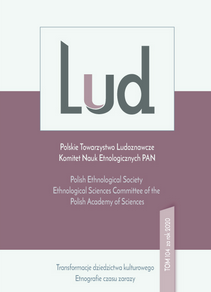„KTO SIĘ NIE RUSZA, TEN JEST FIZOLEM”. O NIEWŁAŚCIWYM REŻIMIE PRACY CIAŁA I JEGO WYKORZENIANIU W KLUBIE BRAZYLIJSKIEGO JIU-JITSU
“WHOEVER DOES NOT MOVE, THEY ARE PURE PHYSICALS.” INAPPROPRIATE BODY REGIME AND ITS ELIMINATION IN THE BRAZILIAN JIU-JITSU CLUB
Author(s): Karol GórskiSubject(s): Sociology of Culture, Sports Studies
Published by: Polskie Towarzystwo Ludoznawcze
Keywords: martial arts; Brazilian jiu-jitsu; rules of behavior; body regimes; body-mind dualism; anthropology of sport; body anthropology;
Summary/Abstract: The following article proposes an analysis of the „fizol” motive as a form of the social label. It also focuses on the phenomenon of „fizolenie” – bodily behaviors considered as quite negative by the Brazilian jiu-jitsu practitioners. The article is based on the ethnographic data, gathered between 2016 and 2019 in one selected Polish club. I took into consideration references coming from in-depth interviews with club members, some observed training practices as well as my own somatic experiences as a practitioner., I refer to Michel Foucault, Norbert Elias, and Mary Douglas to highlight that the fizol figure may serve various functions: it actively disciplines the apprentices, stimulates the internalization of an appropriate, „civilized” fighting style and serves as a basis for classification of people alongside with their bodily practices.
Journal: LUD
- Issue Year: 104/2020
- Issue No: 1
- Page Range: 413-441
- Page Count: 29
- Language: Polish

